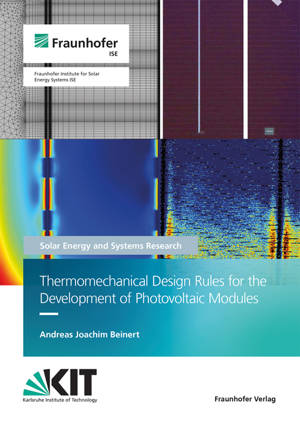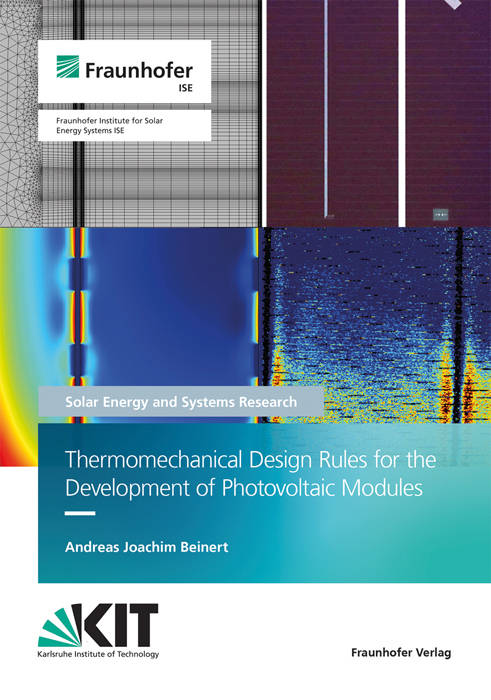
Bedankt voor het vertrouwen het afgelopen jaar! Om jou te bedanken bieden we GRATIS verzending (in België) aan op alles gedurende de hele maand januari.
- Afhalen na 1 uur in een winkel met voorraad
- In januari gratis thuislevering in België
- Ruim aanbod met 7 miljoen producten
Bedankt voor het vertrouwen het afgelopen jaar! Om jou te bedanken bieden we GRATIS verzending (in België) aan op alles gedurende de hele maand januari.
- Afhalen na 1 uur in een winkel met voorraad
- In januari gratis thuislevering in België
- Ruim aanbod met 7 miljoen producten
Zoeken
Thermomechanical Design Rules for the Development of Photovoltaic Modules.
Dissertationsschrift
Andreas Joachim Beinert
€ 56,45
+ 112 punten
Omschrijving
Stress in solar cells plays a crucial role in the reliability of photovoltaic (PV) modules. The influences on stress are as diverse as the number of different materials in a PV module and become more and more complex with the growing variety of PV modules for different applications. Within this dissertation, a set of 15 thermomechanical design rules is derrived to support and accelerate future PV module developments.
Three methods are developed and applied:
1. Thermomechanical finite element method simulations of PV module designs (FEM).
2. µ-Raman spectroscopy of laminated solar cells (µ-Raman).
3. Solar cell integrated stress sensors (SenSoCell®).
Furthermore, the concept of specific thermal expansion stiffness: E ^_a=E·a·A_j·h is introduced as a measure of how much thermal strain one material can induce in another.
Three methods are developed and applied:
1. Thermomechanical finite element method simulations of PV module designs (FEM).
2. µ-Raman spectroscopy of laminated solar cells (µ-Raman).
3. Solar cell integrated stress sensors (SenSoCell®).
Furthermore, the concept of specific thermal expansion stiffness: E ^_a=E·a·A_j·h is introduced as a measure of how much thermal strain one material can induce in another.
Specificaties
Betrokkenen
- Auteur(s):
- Uitgeverij:
Inhoud
- Aantal bladzijden:
- 212
- Taal:
- Engels
- Reeks:
Eigenschappen
- Productcode (EAN):
- 9783839618080
- Uitvoering:
- Paperback
- Afmetingen:
- 110 mm x 13 mm
- Gewicht:
- 314 g

Alleen bij Standaard Boekhandel
+ 112 punten op je klantenkaart van Standaard Boekhandel
Beoordelingen
We publiceren alleen reviews die voldoen aan de voorwaarden voor reviews. Bekijk onze voorwaarden voor reviews.









